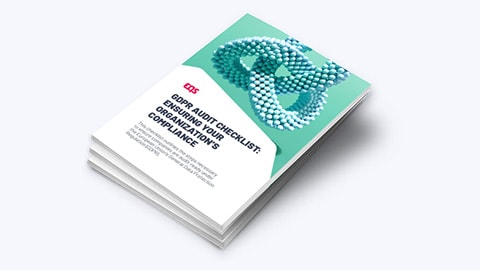Holiday Season Gift-Giving: Tips to Ensure Compliance
During the holiday season, haphazard corporate gift giving can prove a major challenge for overstretched compliance teams.

The wonders of the holiday season are plenty, whether it’s a light dusting of snow on Christmas Eve, a cosy log fire, that juicy turkey or all those presents left to unwrap. However, the dark sides of the festive season manifest themselves in many forms from Scrooge to the Grinch and for companies in particular, the biggest danger may end up being a momentary lapse in concentration at the time of year when attention is required most. Christmas complacency around corporate gift-giving can have major reputational and financial consequences for businesses.
The Christmas compliance challenge
Adhering to a corporate gift and hospitality policy is a constant endeavour that becomes more challenging at certain times of the year and compliance departments are especially vigilant when gift-giving peaks during major events such as Eid al-Adha, Lunar New Year or Christmas. While an expensive bottle of whisky or a dinner in a Michelin-star restaurant can prove a corporate compliance headache at any time of the year, the generosity of the Christmas or holiday season makes it even more difficult to determine whether a gesture of good will was actually an act of bribery.
It is important to understand what constitutes a gift and under the vast majority of ethics laws and conduct standards, it is defined as any item of monetary value. Some companies have adopted a heavy-handed approach towards festive gift giving, discouraging the practice, while others might be viewed as being on thin ice when it comes to compliance.
In the United States, the IRS adopted a rule in 1962 which stated that businesses should not gift their clients items with a value of more than $25. That applied to each person within a client’s business, meaning that a gift with a value of $500 could be given to an organisation with 20 employees. While there are theoretically ways to circumvent this rule, it is important that businesses understand it and have robust processes in place, especially in the run-up to the holiday season. The following tips can help compliance departments stay on top of their game at the most wonderful (and riskiest) time of the year.
Use common sense and good judgement
It may seem obvious, but companies need to encourage their employees to use common sense and exercise good judgement when it comes to gift-exchanges during the holiday season. Common sense can disappear during the excitement of an alcohol-fuelled Christmas event, leading to dangerous lapses of concentration during interactions with key stakeholders.
It is important to always consider whether the gift in question serves a legitimate business purpose associated with improving a business relationship or building good will. Likewise, a lavish corporate gift with a high value should trigger alarm bells, regardless of the situation.
Be transparent and seek advice
Managers or compliance officers should always be informed about gifts or events and they should be documented in an organisation’s gift and hospitality register. The digitisation of such systems has allowed companies to define rules, automate processes and manage gifts, invitations and conflicts of interest with ease. As such, reporting gifts can be done at the click of a button and should be encouraged.
It is also vital to remind staff members to reach out to the compliance department if there are any uncertainties. While this can be achieved through a phone call or email exchange, it is recommended to utilise gift and hospitality approval software where communication is integrated, allowing companies to boost efficiency, eliminate uncertainty and create a digital audit trail.
Always refer to your company’s Code of Conduct and learn how to decline gifts graciously
Choosing to accept or reject a corporate gift during the holiday season can prove a difficult call for employees. A solid and up-to-date Code of Conduct where rules surrounding gifts and hospitality are clearly outlined is key to mitigating risk. Modern digital rulebook programs provide companies with tools that communicate the Code of Conduct on the go while ensuring competence is maintained in all situations, even during risky corporate Christmas events.
It is easy to agree to a questionable proposition from a business partner because you do not want to cause offence. If an employee speedily consults his or her digital rulebook via smartphone during a holiday season gift exchange and a red flag appears, it is vital that the gift or service can be declined graciously. Company training or one-on-one sessions can prove helpful in navigating the unease and potential embarrassment of having to turn down a kind gesture from a valued business partner.
The value dilemma
As mentioned earlier, a gift of excessive value should raise eyebrows as it may well have strings attached. Depending on the size of the company receiving it, an expensive item may also fall foul to rules such as the value cap imposed by the IRS in the United States. Pricey bottles of champagne or wine are extravagant and should prompt the prospective recipient to consult company policy before accepting.
Many companies mitigate this particular risk by implementing limits on the value of gifts that are clearly outlined and can be easily consulted via the gift and hospitality software or the digital Code of Conduct. It is important to remember that extravagance is not only associated with gifts. It also applies to meals, events and other expensive proposals.
When it is difficult to gauge the value of an item, an employee should always reach out to the compliance department for guidance. In more complex cases such as the common case of a present taking the form of a Christmas gift basket, the recipient is advised to share the contents with the entire team, thus transforming a potentially expensive and risky item into a festive treat for the wider company.
Be aware of blacklisted items
During the holiday season, the entire business should be aware of any blacklisted items outlined in a company’s gift and hospitality policy. For example, there has been extensive debate as to whether cash is an appropriate gift and most companies generally forbid giving and receiving it. Anyone receiving a suspicious brown envelope should politely reject it.
On the other hand, vouchers and gift certificates are a viable alternative to cash. If they breach an organisation’s value threshold, they can usually be donated to a charity, circumventing any ethical question marks.
Amplify reminders about your gift and hospitality policy
Throughout the year, the most important line of defence for companies is having a gift and hospitality policy that defines rules and processes such as what constitutes corruption, the importance of protecting the company and the practices considered acceptable when it comes to gift-giving and hospitality.
It is important to communicate with employees regarding policy on a regular basis and ratchet things up in the run-up to the holiday season. A clear communication plan should be established whereby employees are directed to re-examine the rules and advised to exercise good judgement when it comes to festive gifts or entertainment. Such an approach goes a long way towards mitigating risk.
Companies utilising interactive approval management software have an edge during the holiday season, especially when it comes to communication. Push notifications can be sent to employees reminding them of the heightened level or risk while their questions can be swiftly answered, even in an urgent situation.
For both organisations with and without technological solutions, it can also help to share a nicely designed and humorous Christmas card remind employees of the rules around gift giving and accepting in addition to where they can find more information about the topic.
Conclusion
A gift is something of value given without the expectation of return while a bribe is the same thing given in the hope of influence or benefit. It is essential that employees recognise the difference throughout the year and remain especially vigilant during the holiday season.
For companies, an effective communication plan is critical when it comes to keeping employees on their toes during a period of profound risk. They should be provided with clear and accessible guidelines around gifts and hospitality, regularly reminded about the heightened dangers of festive engagements, and trained how to handle any conflicts of interest. Companies should also prioritise digitising their Code of Conduct and gift register so that members of staff can make the correct decisions in urgent situations while all exchanged items can be documented.
Unprepared organisations run the risk of their employees letting their guard down and that can result in a Christmas corruption scandal with immense financial and reputational consequences.
For further details on how to mitigate risk in this area, please consult our in-depth Guide on Managing Corporate Gifts and Hospitality.
Key principles of establishing an effective ABC programme





